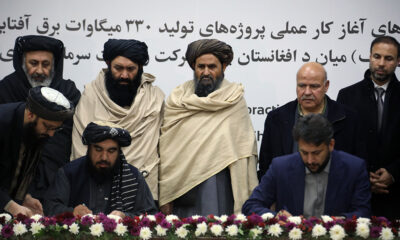Latest News
Beware Taliban promises, Afghanistan envoy to China warns
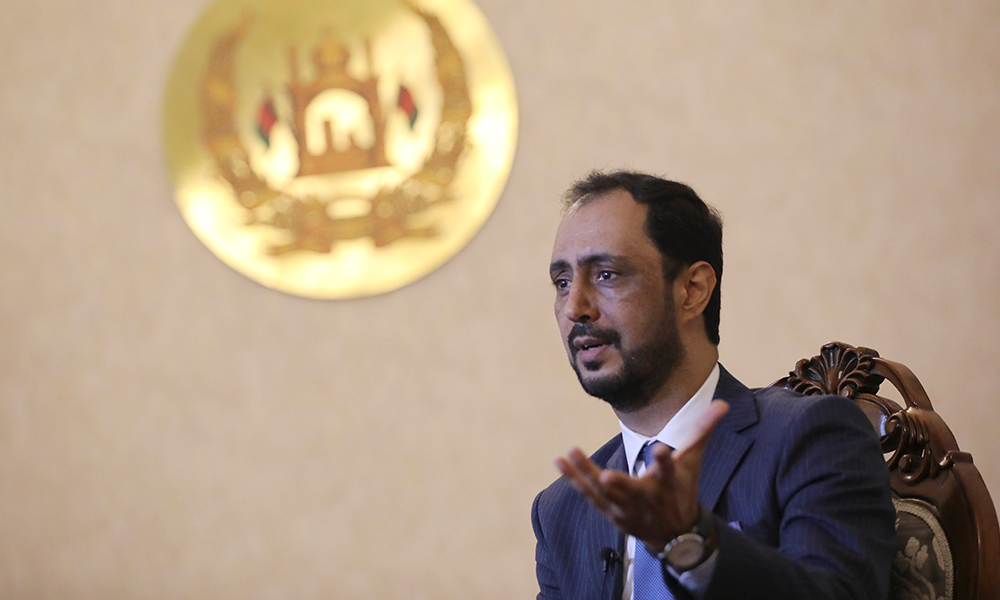
The Taliban cannot be trusted to keep their promise to China not to harbour Islamist militants seeking separatism in its Xinjiang region, Afghanistan‘s ambassador to China told Reuters, a week after China hosted Taliban officials.
The withdrawal of U.S. forces from Afghanistan, and a surge in fighting as Taliban insurgents gain territory, raise concerns for China, which worries that more instability in the region will disrupt its Belt and Road plan for infrastructure and energy links to the west and embolden separatists to destabilise its far western Xinjiang region.
Last week Foreign Minister Wang Yi hosted a Taliban delegation in the northern city of Tianjin, days after meeting U.S. Deputy Secretary of State Wendy Sherman in the same location.
The Taliban pledged not to interfere in China’s internal affairs or allow Afghan territory to be used by anti-China forces.
But Afghan ambassador to China, Javid Ahmad Qaem, was dismissive of Taliban promises.
“I don’t think even China believes in that,” Qaem told Reuters in an interview, adding that the Taliban were “only saying this to get regional support”.
Instead of backing one Afghan side against another, as the United States and the Soviet Union have done in the past, China has adopted an “Afghan-led, Afghan-owned” approach, in line with its principle of non-intervention.
“The Chinese position is they want to mediate,” Qaem said in the Thursday interview at his embassy, adding that the U.S.-backed Afghan government welcomed China’s involvement and he understood why it wanted to stick to the middle ground.
The United Nations said in a report last month that the East Turkestan Islamic Movement (ETIM), a militant group affiliated with al Qaeda that China says wants to set up a separate state in Xinjiang, is active in Afghanistan in areas including the northeastern province of Badakshan, where China and Afghanistan share a remote 76 km border.
Qaem, 41, who has been in his post since November 2019, scoffed at the suggestion the Taliban might turn against their fellow militants from Xinjiang.
“It’s the same ideology. How could you expect somebody with the same thinking to fight other people who are with the same thinking?” he said.
China has maintained friendly relations with the Afghan government but also has also hedged its bets, analysts say, with its ties with the Taliban. Last month’s visit by a Taliban delegation followed a similar one in 2019.
In receiving the Taliban officials in their traditional tunics and turbans, Wang called them a “significant military and political force” expected to play a key role in Afghanistan‘s reconstruction.
“As the Taliban gain inroads, China wants to maintain contact and ensure that it is not in the Talibans’ bad books, just in case they come to power,” said Yang Chaohui, a lecturer at the School of International Studies at Peking University.
“China would normally be wary of any grouping that operates on the basis of religious extremism, but it has no intention of fighting the Taliban, because it knows it has no chance of succeeding in what the United States and Soviet Union have both failed to do,” Yang said.
Qaem said he would prefer that China was fully behind the government but also said that Beijing was transparent about its engagement with the Taliban, informing the government before extending its invitation and briefing it afterwards.
“We have faith in the Chinese intentions,” he said.
Qaem said the Afghan government had not asked China to send troops to support it but it could help in other ways.
China could encourage Pakistan – which has long seen the Taliban as the best option for limiting the influence of old rival India in Afghanistan – to build trust with the Afghan government, Qaem said.
China could also serve as a conduit for messages from Kabul to the Taliban, as it was at last week’s meeting – relaying a government call for a ceasefire and an appeal for an inclusive political framework, he said.
China can also help in boosting trade and buying more Afghan products such as saffron, he said.
“So as long as that is provided, I don’t think China needs to send boots,” he said.
Latest News
Karzai: Development of human society requires women’s and girls’ access to education
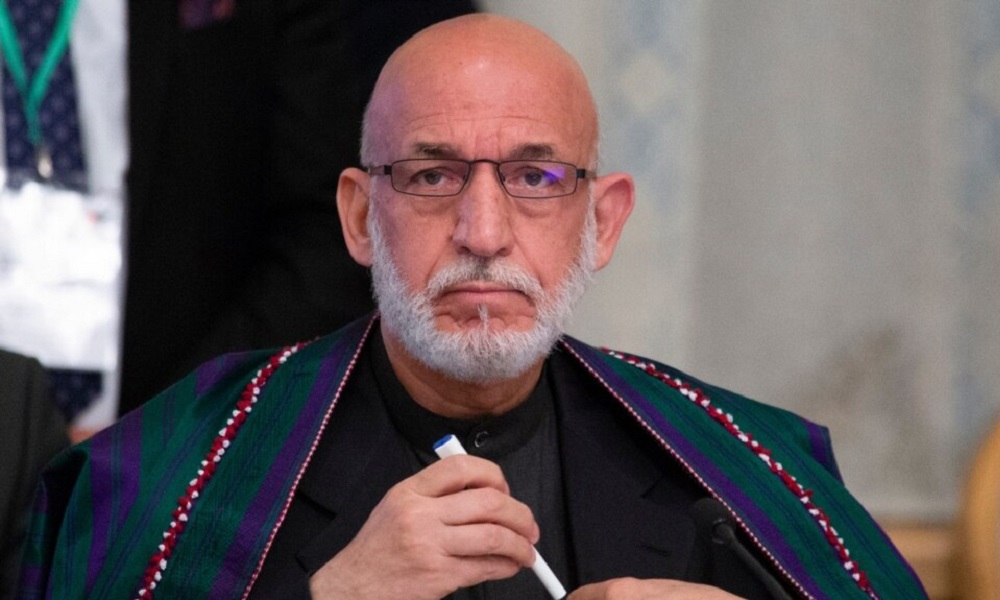
Former Afghan President Hamid Karzai says the growth and development of human society in various dimensions require the active role of women and girls, and this is only possible if they have access to education.
Karzai made these remarks on Wednesday on the occasion of the International Day of Women and Girls in Science, which falls on February 11.
Expressing appreciation for the role of Afghan women and girls in social life, he encouraged them to strive by all possible means to gain access to education and training and to participate in the growth and development of the country.
Latest News
Four years on, UN and EU renew call for Afghan girls’ right to education
The European Union delegation in Afghanistan also stressed the importance of women’s participation in science, technology, engineering, and mathematics (STEM).

As the world observed International Day of Women and Girls in Science, the United Nations and the European Union renewed their calls for Afghan girls’ right to education, warning that continued restrictions threaten the country’s future development.
The United Nations in Afghanistan said the day was marked with sorrow, noting that 1,607 days have passed since girls over the age of 12 were barred from attending school.
UNAMA warned that more than four years of exclusion have led to lost opportunities and undermined key sectors that rely on educated women, reiterating its demand that the ban be lifted.
The European Union delegation in Afghanistan also stressed the importance of women’s participation in science, technology, engineering, and mathematics (STEM).
In a statement, the EU said Afghan women — including nurses, midwives, and researchers — play a crucial role in building a healthy and prosperous society, adding that women must remain central to scientific progress. The bloc reaffirmed its support for education for all Afghans.
The United Nations further emphasized that equality in science is essential not only for human advancement but also for ensuring that technology and artificial intelligence contribute to global prosperity.
It warned that excluding Afghan women and girls from education and employment is not only an act of marginalization but a serious barrier to Afghanistan’s long-term development and stability.
The statements come amid continued international appeals to expand access to education and job opportunities for Afghan women and girls.
Latest News
Khalilzad questions whether Pakistan played a ‘double game’ in Afghanistan war
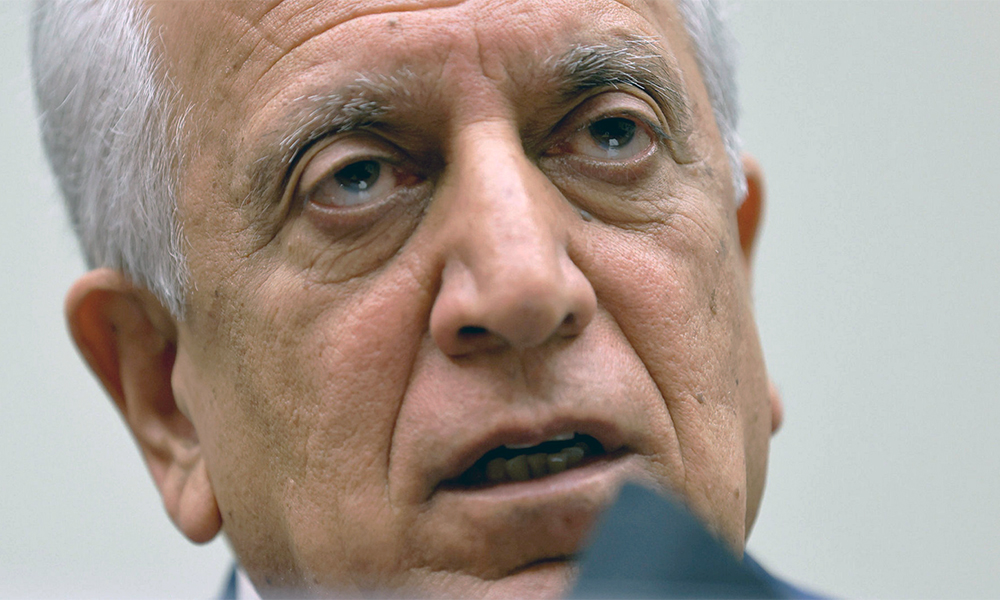
Former U.S. Special Representative for Afghanistan Reconciliation Zalmay Khalilzad has questioned whether Pakistan pursued a “double game” during the war in Afghanistan, following recent remarks by Pakistan’s Defense Minister Khawaja Asif about Islamabad’s role after the September 11 attacks.
Speaking in Pakistan’s parliament, Asif said the country had effectively “rented itself to the United States” by aligning with Washington in the U.S.-led war on terror.
Responding to the comments, Khalilzad noted that while Pakistan was receiving U.S. military and financial assistance, it was also accused of providing sanctuary to groups fighting American and allied forces in Afghanistan. He questioned whether this amounted to playing both sides of the conflict.
Khalilzad further asked whether Pakistani authorities may have received benefits or “rent” from another power in return for offering safe haven to anti-U.S. fighters, suggesting that clear answers could provide greater insight into regional policies during the Afghanistan war.
His remarks came a day after Asif said that previous wars in Afghanistan were driven by political interests rather than long-term stability.
-

 Latest News4 days ago
Latest News4 days agoAfghanistan to grant one- to ten-year residency to foreign investors
-

 Sport4 days ago
Sport4 days agoIran clinch AFC Futsal Asian Cup 2026 in penalty shootout thriller
-

 Latest News4 days ago
Latest News4 days agoAfghanistan says Pakistan is shifting blame for its own security failures
-

 Latest News4 days ago
Latest News4 days agoTraffic police receive new cars
-

 International Sports3 days ago
International Sports3 days agoWinter Olympics gain momentum as medal table takes shape
-

 Sport2 days ago
Sport2 days agoChampions League Elite action continues as qualification race tightens
-

 Regional5 days ago
Regional5 days agoIran’s FM calls Oman-mediated talks with US ‘good start’
-
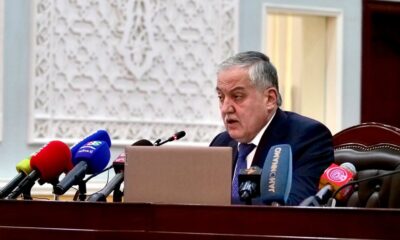
 Latest News3 days ago
Latest News3 days agoTajik foreign minister urges international community to help Afghanistan address its challenges






